
A set of symbols are shorthand for describing the type of weld, its size, and other processing and finishing information. You will often find these on engineering and fabrication drawings. Here we will introduce you to the common symbols and their meaning. American National Standards Institute (ANSI) and the American Welding Society (AWS) publish ANSI/AWS A2.4, Symbols for Welding and Nondestructive Testing, which provides a complete set of symbols.
Basic terms of a welded joint are shown in Fig. and the five basic types of joints are shown in Fig.

Various categories of welded joints (welds) are characterized by symbols which, in general, are similar to the shape of welds to be made. These symbols are categorized as:
(i) Elementary symbols
(ii) Supplementary symbols
(iii) Combination of elementary and supplementary symbols and
(iv) Combination of elementary symbols.
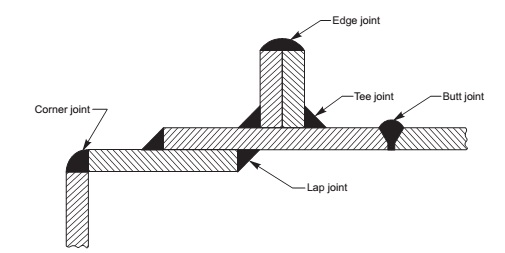
Position of Weld Symbols on Drawing
The complete method of representation of the welds on the drawing comprises, in addition to the symbol (3), the following Fig.
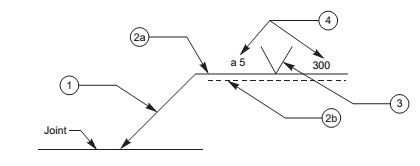
(i) An arrow line (1) per joint,
(ii) A dual reference line, consisting of two parallel lines; one continuous and one dashed (2a, 2b) and
(iii) A certain number of dimensions (4) and conventional signs (3).
NOTE The dashed line may be drawn either above or below the continuous line (Fig.). For symmetrical welds, the dashed line is omitted.
Elementary Welding Symbols
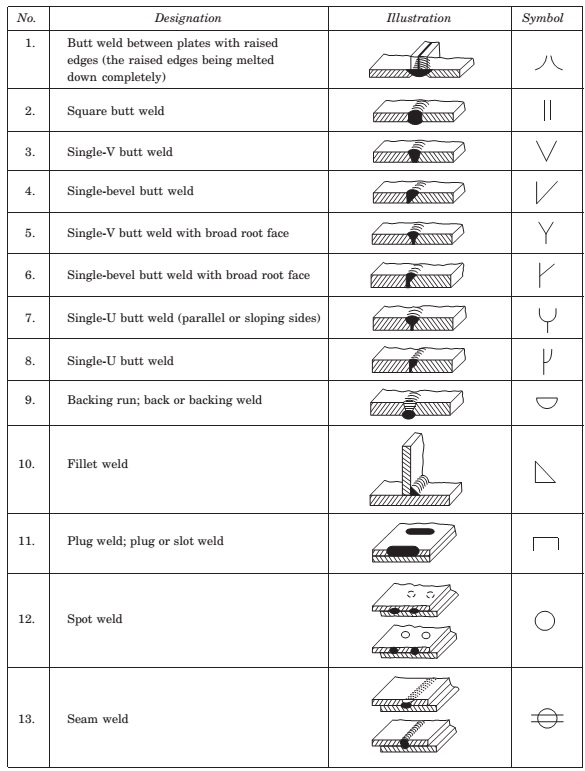
Supplementary Welding Symbols

Combination of Elementary and Supplementary Symbols
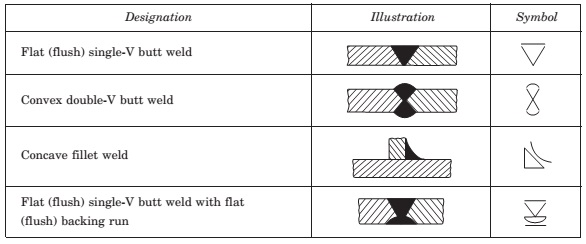
Combination of Elementary and Supplementary Symbols (contd.)
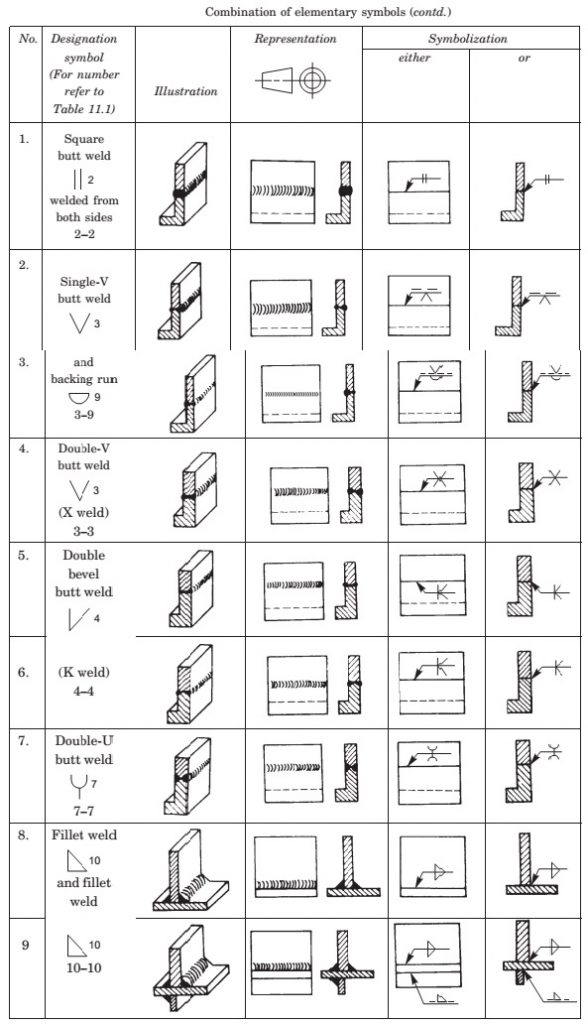
Conventional Signs
The two conventional signs used for welding as per BIS are a circle at the elbow (1), connecting the arrow and the reference line to indicate welding all around, by a filled-in circle (2) at the elbow to indicate welding on site, as shown in Fig. These are shown, in addition to
the weld symbols of the joint to be made.
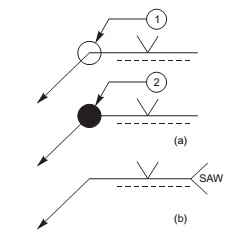
Another convention as per International Standards Organisation, indicates the process of welding. For this, the abbreviation of the welding process is written as a note at the tail end of the arrow, forming a 90°V as shown in Fig. Here, SAW stands for submerged arc welding.
Location of Welds
The location of the welds is specified by the following:
(i) Position of the arrow line,
(ii) Position of the reference line and
(iii) Position of the symbol.
Position of Arrow Line
The arrow line joins one end of the continuous reference line, forming an angle with it, and is completed by an arrowhead. The figure shows the relation between the arrow line and the joint. The terms ‘arrow side’ and ‘other side’ (in the case of fillet welding) are used with respect to the continuous plate.
The position of the arrow line with respect to the weld is generally of no special significance.
However, in the case of edge preparation, the arrow line points towards the plate which is prepared.
Indication of Edge Preparation
Position of the Reference Line
The reference line shall preferably be drawn parallel to the bottom edge of the drawing and if it is not possible; then it is drawn perpendicular.
Position of Symbol
The symbol is placed either above or beneath the reference line as per the following regulation: It is placed on the continuous side of the reference line, if the weld (weld face) is on the arrow side of the joint or on the dashed line side, if the weld is on the other side of the joint, as shown in Fig.
Dimensions of Welds
A certain number of dimensions may accompany each weld symbol. These dimensions are written as indicated in Fig. It shows (i) the main dimensions relative to the cross-section, written on the left-hand side of (before) the symbol and (ii) the longitudinal dimension written on the right-hand side of (after) the symbol. NOTE The absence of any indication following the symbol signifies that the weld is to
be continuous over the whole length of the workpiece.
There are two methods to indicate the dimensions of fillet welds as shown in Fig. The letter a(throat thickness), or z(leg length) is always placed in front of the value of the corresponding dimension.
No tags for this post.


